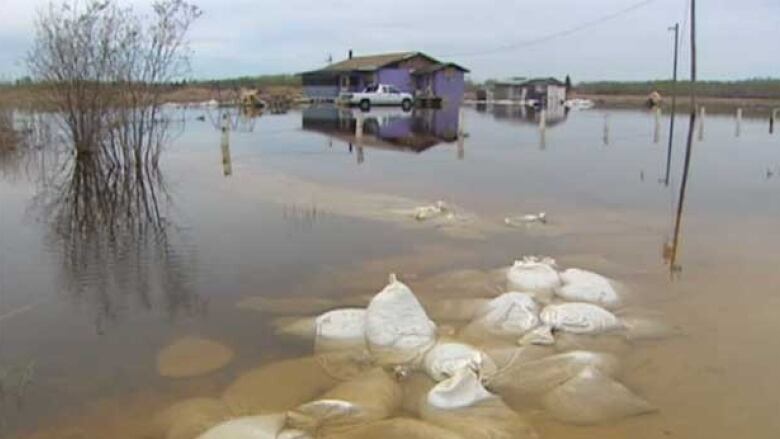Audit finds government's plan to return victims of flooding to First Nations disorganized
Internal report prepared by Aboriginal Affairs and Northern Development Canada

The federal government's plan to return those who were forced from their homes following catastrophic flooding on four Manitoba First Nations is disorganized and lacks resources, an internal audit report states.
The report Audit of the Operation Return Home Projectprepared by the Audit and Assurance Services Branch of Aboriginal Affairs and Northern Development Canada, was writtenin December 2015 and focuses on the federal government's activitiesbetweenApril 1, 2013, and Sept. 30, 2015. It was posted on their websiteon May 4.
The reportexplores whatthegovernment has done to move members of Canada's Indigenous communities back to their homesafter Lake St. Martin and Dauphin River First Nations were evacuated because of flooding in 2011. Parts of Little Saskatchewan and Pinaymootang First Nations were also evacuated.
In total, 2,255 fled their homes during the flood, which started in late March2011. More than five years later, in May 2016, approximately1,800 evacuees have not been able to go home, according to the report.
The activities required to return those affected to their home communities is called Operation Return Home, and those governing the project, the reportsays, expect to complete it by fiscal year 2017-18.
The findings suggest that theymay not meet that deadline.
As of September 2015, the executive senior committee of Operation Return Homehad not held a meeting since April 2015, according to the report. Before April 2015,the committee was the main governance channel, but by the time the report was complete, the committee was not scheduling meetings regularly.
"Without regular meetings with central agencies, there is an increased risk that key stakeholders will not be aware of issues in a timely fashion, which could impact the outcome of the project," the report states.
All four recommendations outlined in the report relateto Aboriginal Affairs'management practices.For example, the audit found a number of departments are involved in the primary delivery of the project, and governance changes regularly.
"With the evolution of the project governance structure, there is a lack of formally defined linkages to demonstrate the necessary support from the headquarters sectors," the report says.
Those sectors include Lands and Economic Develop and Treaties and Aboriginal Government, among others.
Additionally, the report finds that risks for specific First Nations are mentioned, but risk assessments for all four have not been completed.
"There is an increased need to ensure risk mitigation activities are considered in the context of each First Nation impacted by the [Operation Return Home] project," it says.
Recommendations
The audit report's recommendations for improvement arecentred around regular scheduled meetings, clear definitions for the roles of departments involved in the project's governance and a formal plan for resources, including requirements, experience and competencies required for those filling the roles.
Specifically, the report recommendsupdating the project's risk management approach, whichincludes tracking and reporting potential risks and issues to governance bodies.
In the final section of the audit report, titled "Lessons Learned," it says future projects of the size and complexity of Operation Return Home would benefit from a project management framework that ensures the necessary support is identified early.












_(720p).jpg)


 OFFICIAL HD MUSIC VIDEO.jpg)
.jpg)



























































































